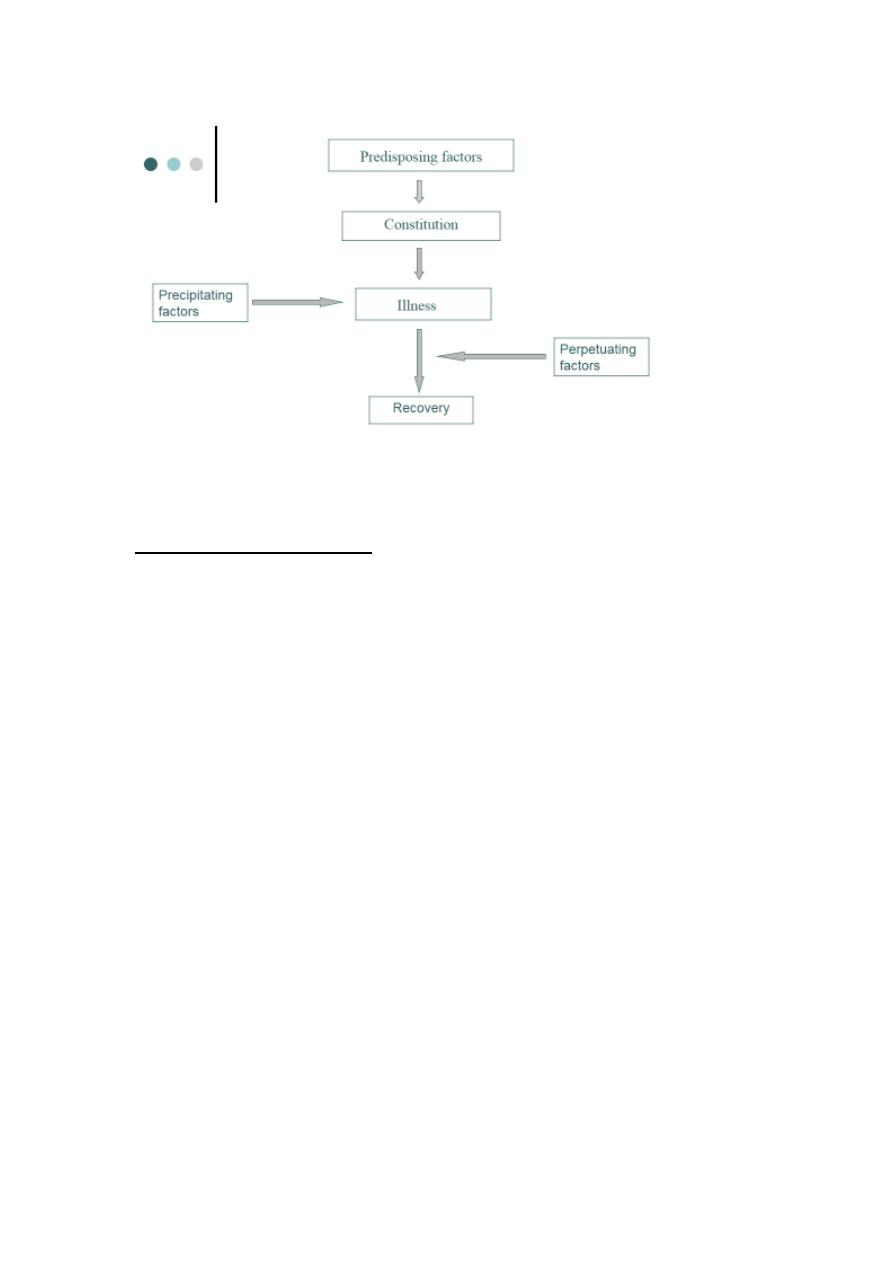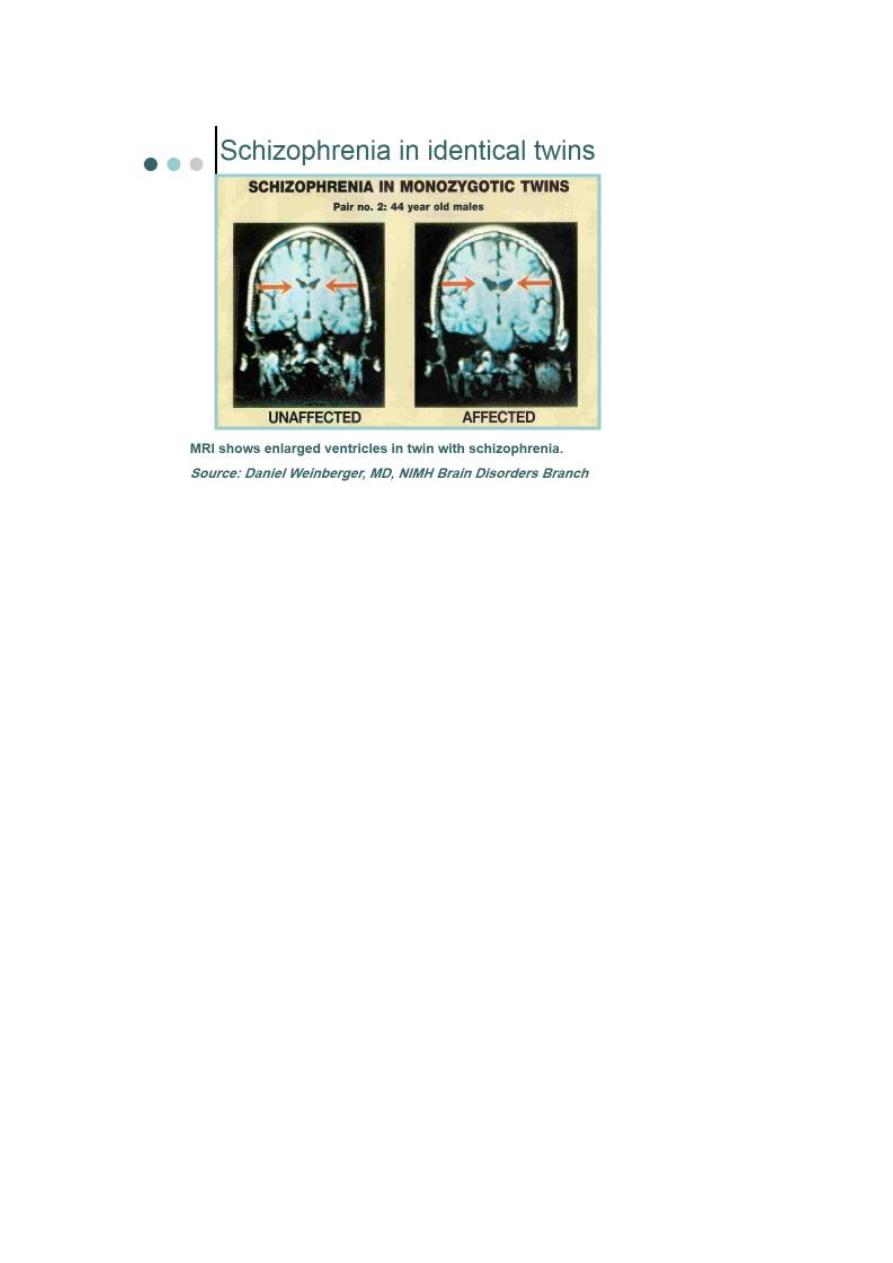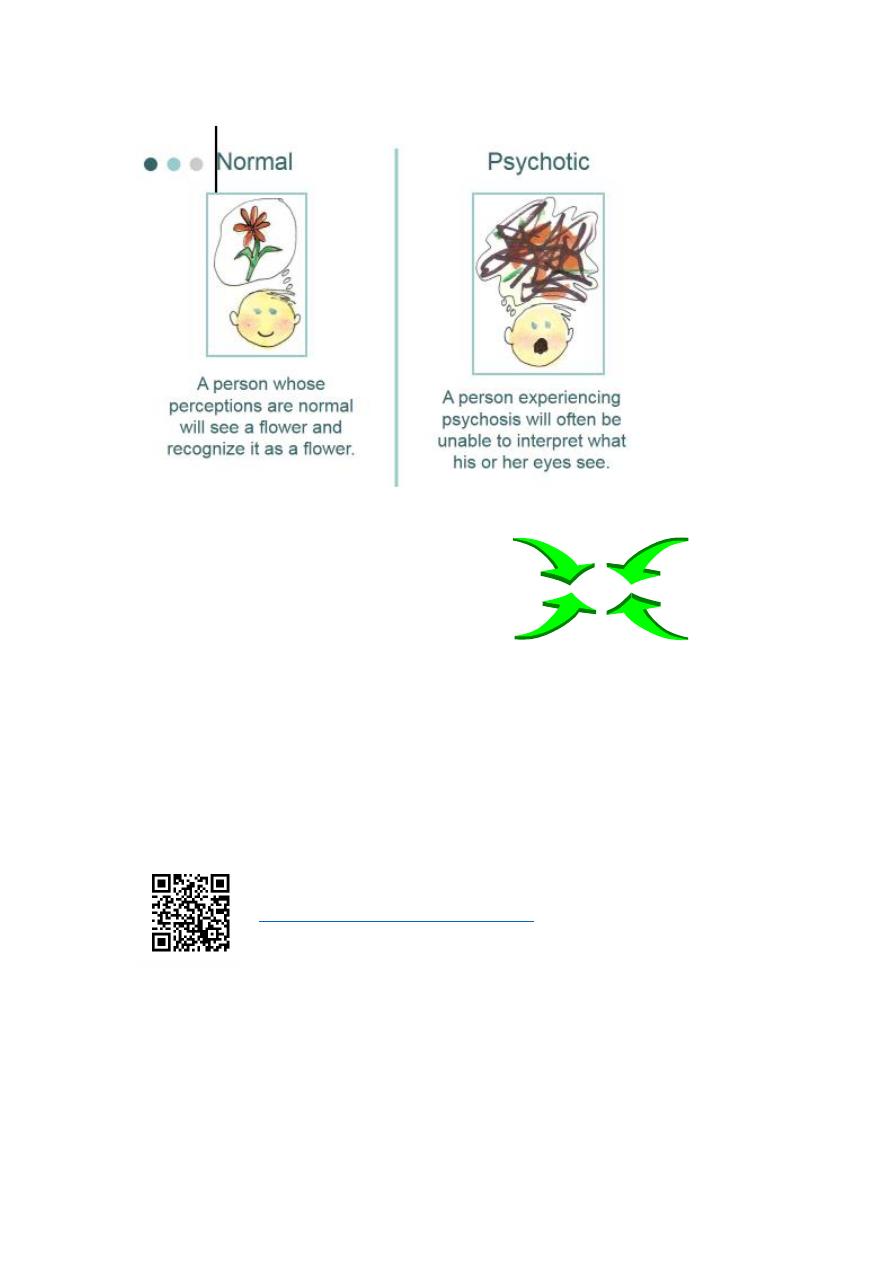
Fifth stage
Psychiatry
Lec-2
د.الهام
16/10/2015
Aetiology of Psychiatric Disorders
In Psychiatry, the study of causation is complicated by two problems:
1. Causes are often remote in time from the effects that they produce e.g.
childhood experience adult anxiety disorders.
2. a) A single cause may lead to several effects e.g. deprivation of parental
affection antisocial behavior, suicide, depression…
b) A single effect may arise from several causes e.g. M.R. Depression.
Classification of Causes:
1- According to nature:
a) Biological
b) Psychological
c) Social
2- According to the effect:
a. Predisposing factors
b. Precipitating factors
c. Perpetuating (maintaining) factors

A- Predisposing factors:
- Operating from early life, that determine a person’s vulnerability
to causes acting close to the time of illness.
- Constitution is often used to describe the mental and physical
make up of a person at any point in his life
PERSONALITY is always an essential element that help to explain
why the patient responds to certain stressful events and he reacts in a
particular way.
e.g. - Genetic endowment
- Environment in utero
- Trauma at birth
- Social & psychological factors in infancy & early childhood.
B- Precipitating factors:
Events that occur shortly before the onset of a disorder and
appear to have induced it.
e.g. -
Physical disease
-
Drug
-
Loss of job
-
Changing residency
C- Perpetuating factors:
These factors prolong the course of a disorder after it has been
provoked.
e.g. -
Intrensic to the disorder (avoidance in phobic disorders)
-
Social circumstances (marital discords, over protecting
parents).

Approaches to Etiology:
1. Genetics:
-
Family risk studies
-
Twin studies
-
Adoption studies
-
Genetic causes have been studies mainly in moderate to
severe mood disorders and schizophrenia.

2. Biochemical studies:
-
Can be directed either to the cause of the disease or to the
mechanism by which it produces its effect.
-
Most studies have focused on the monoamine
neurotransmitters.
-
5 Hydroxy tryptamine.
-
Noradrenaline
-
Dopamine
3. Endocrinology:
Hormonal changes can have profound effects or mood and
behavior.

4. Neuropathology:
- Attempt to answer the question as to whether a structural change
in the brain (localized or diffuse) accompanies a particular kind of mental
disorder.
-
There is an obvious application to the etiology of dementia and
other psychiatric disorders associated with organic lesions.
5. Psychological theories of etiology:
a) Psychoanalysis
-
Provides a comprehensive range of explanation for clinical
phenomena.
-
The central feature is the concept of unconscious mind
which characterized by:
a – divorce from reality
b – being dynamic
c – being in conflict with the conscious mind.
-
It is important in the etiology of neurotic disorders.
-
Neurosis originate from failure to pass normally through 3
stages of development oral anal genital.
-
Anxiety is the central symptom of all neurosis.
-
Defense mechanisms (such as rationalization and
projection) are used to reduce anxiety.
b) Learning theories:
Experiences in childhood and later life give rise to neurosis.

c) Cognitive theories:
Symptoms and behavior are produced and maintained by
maladaptive ways of thinking.
6. Social Science:
Many of the concepts used by sociologists are relevant to psychiatry.
e.g. (1) Life events Migration, unhappy marriage, problems of work.
(2) Family factors lack of social support, criticism, and
over protection within the family.

Interventions for Mental Illness
No One Intervention Is Sufficient
We Have to Approach from All Directions
https://www.muhadharaty.com/lectures
